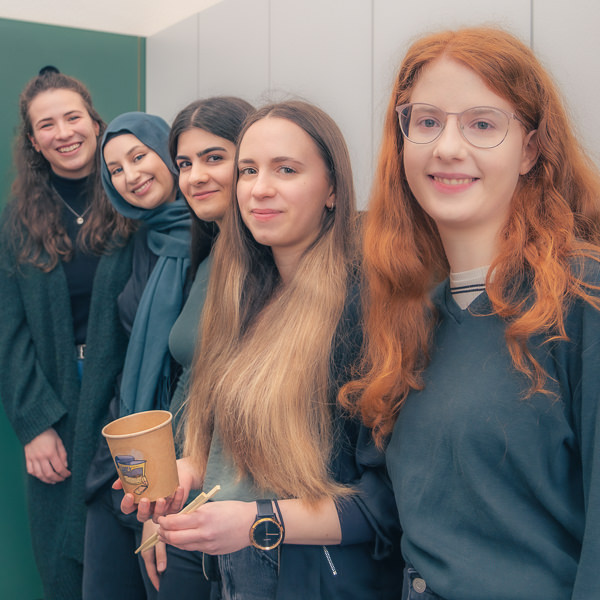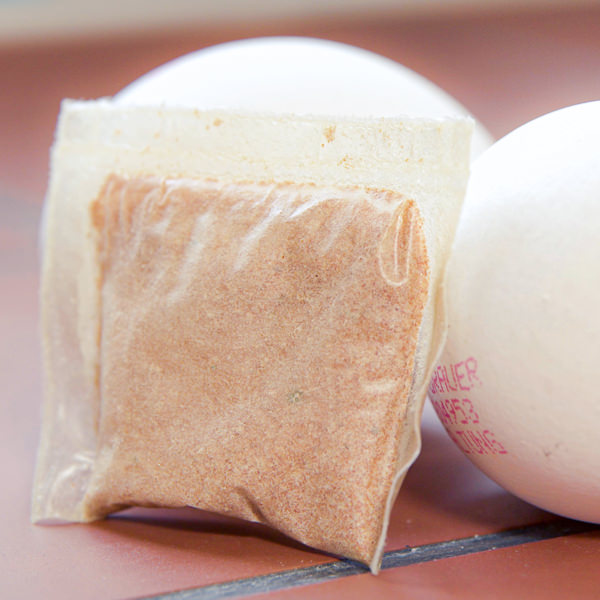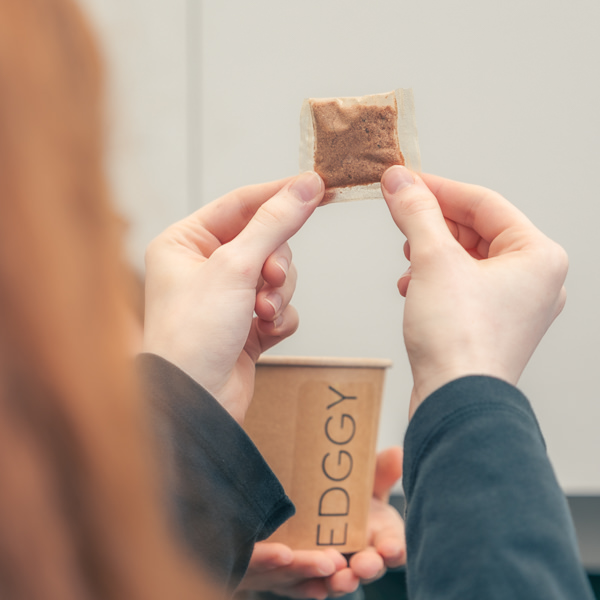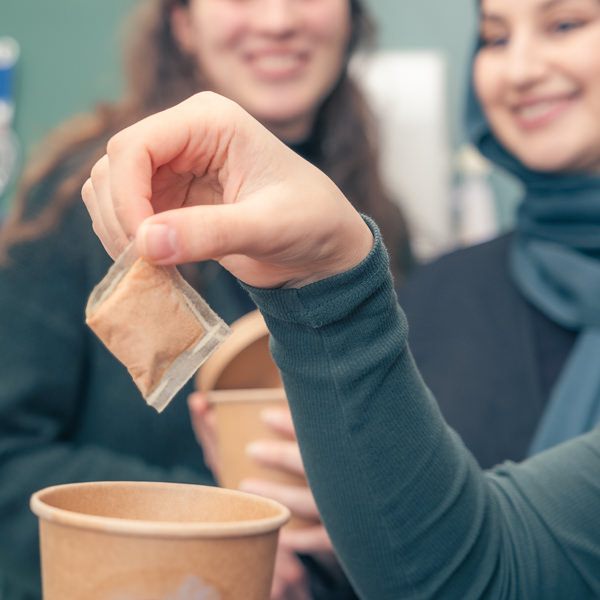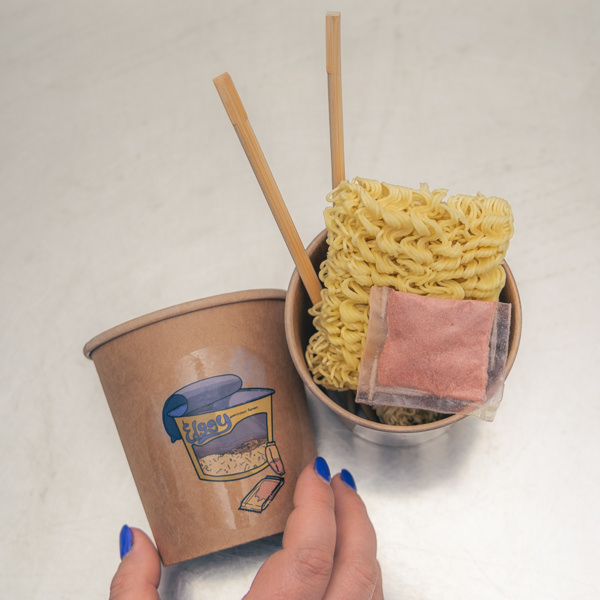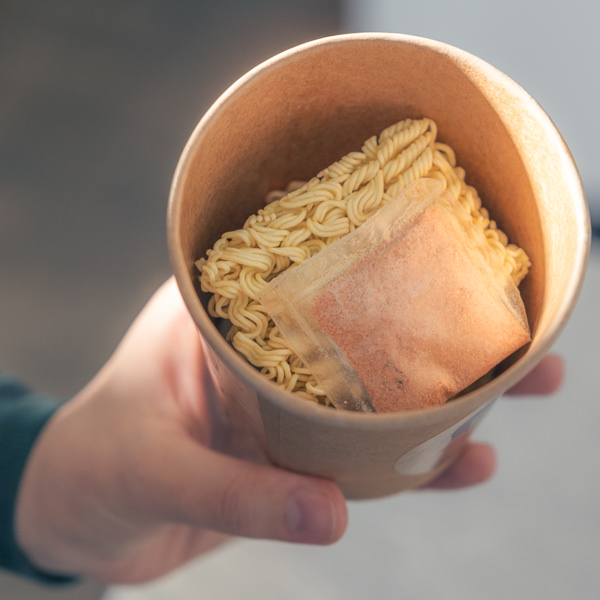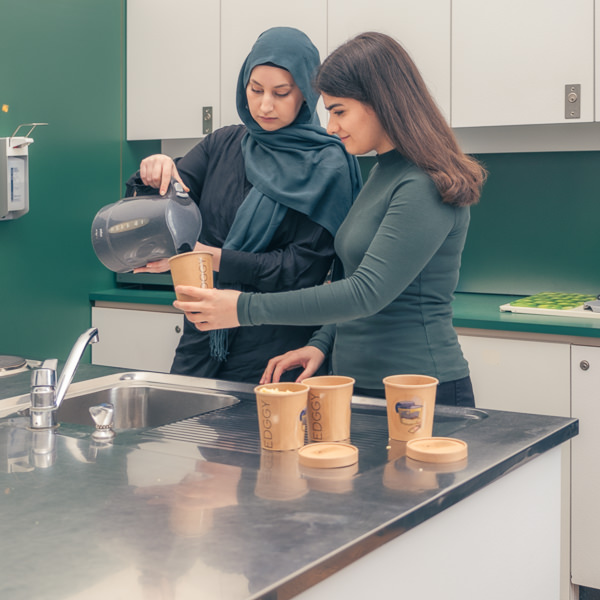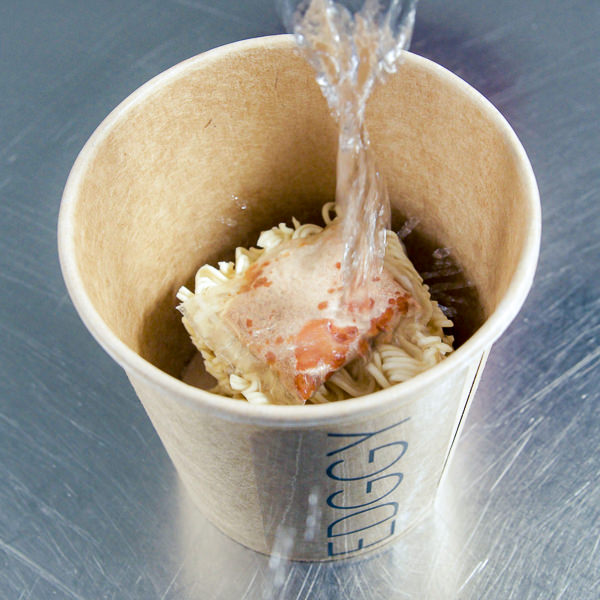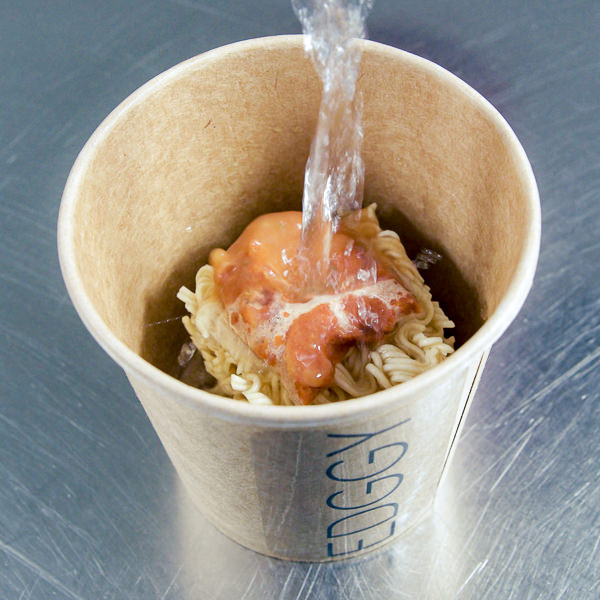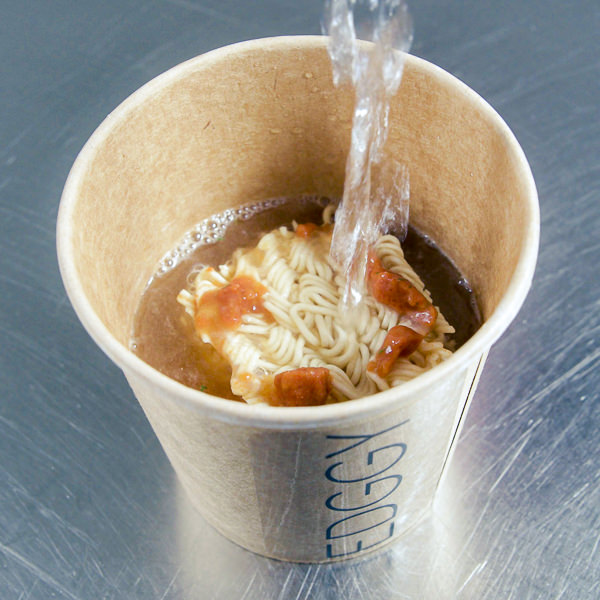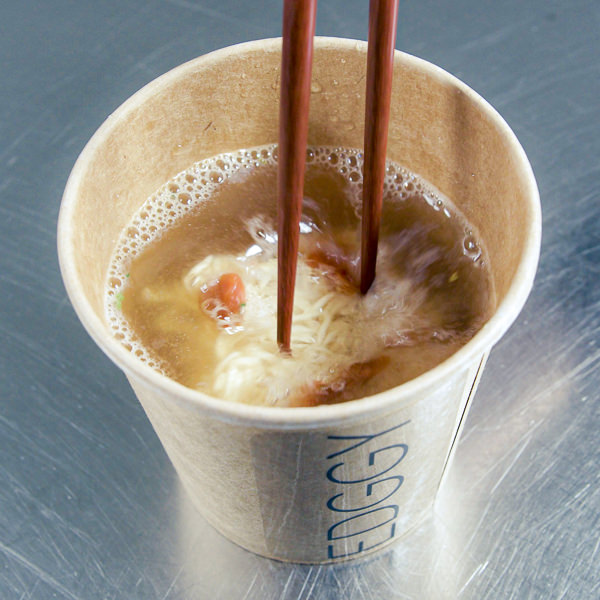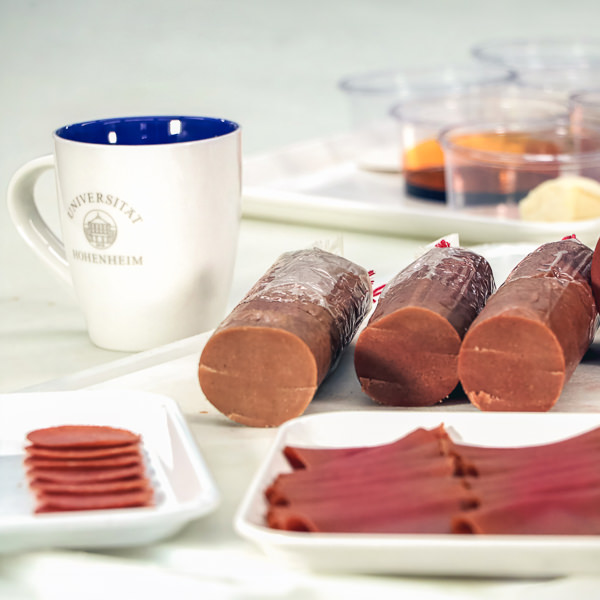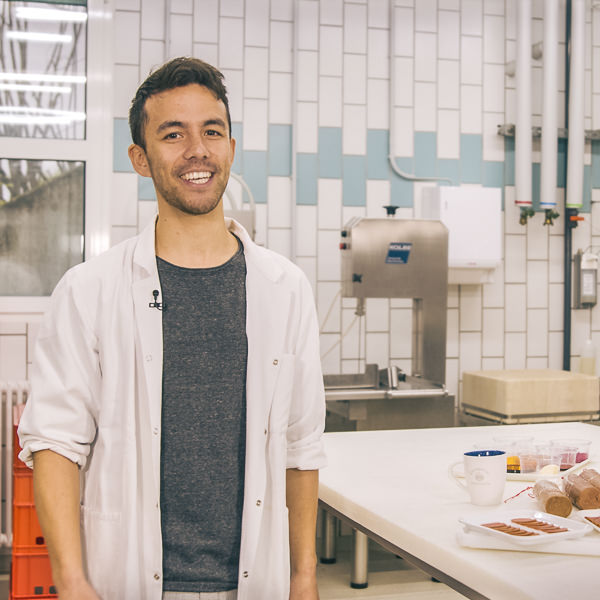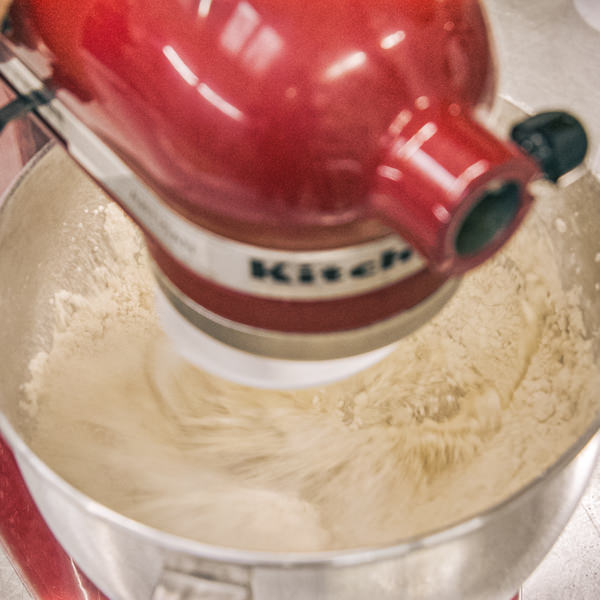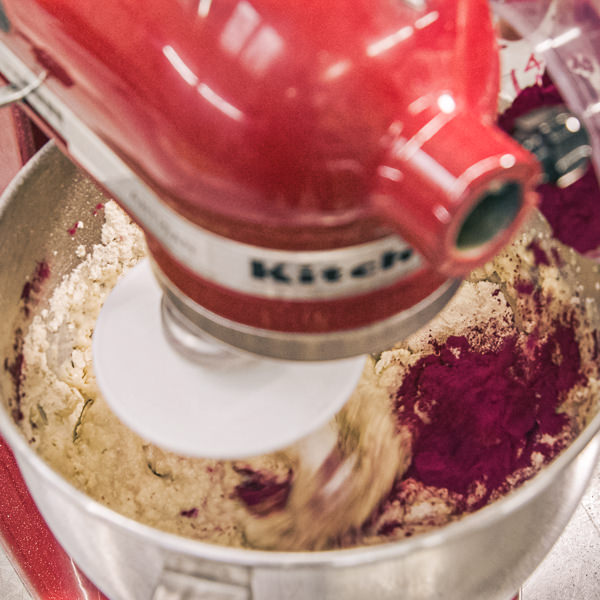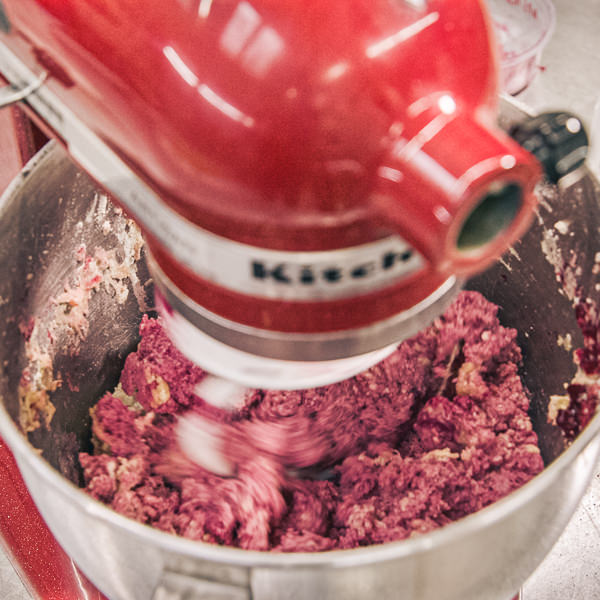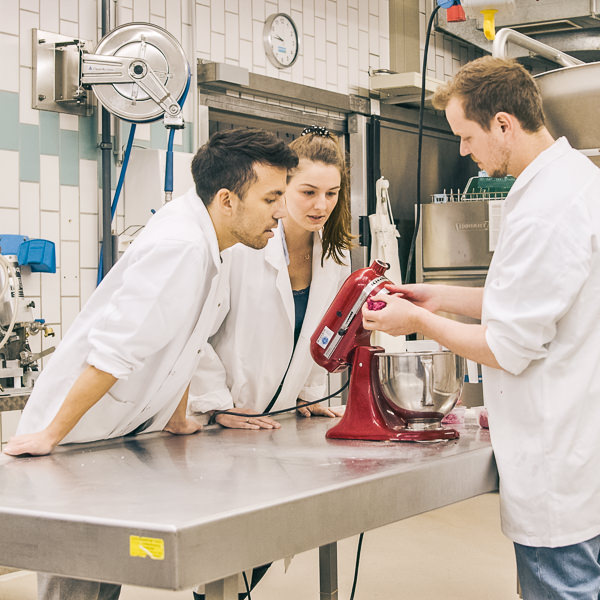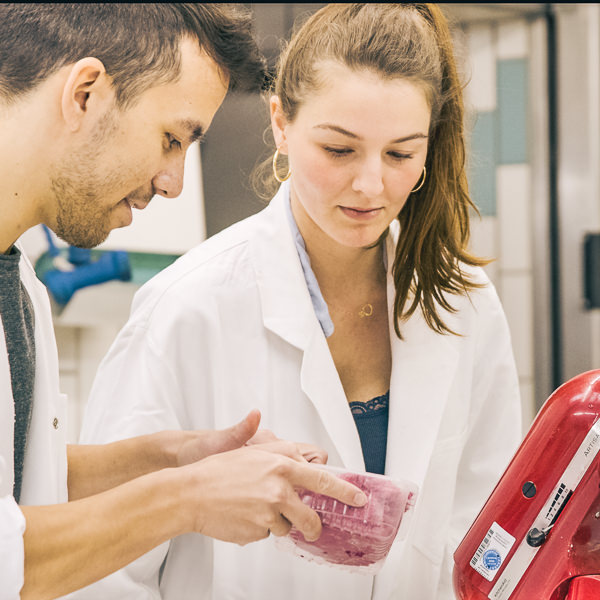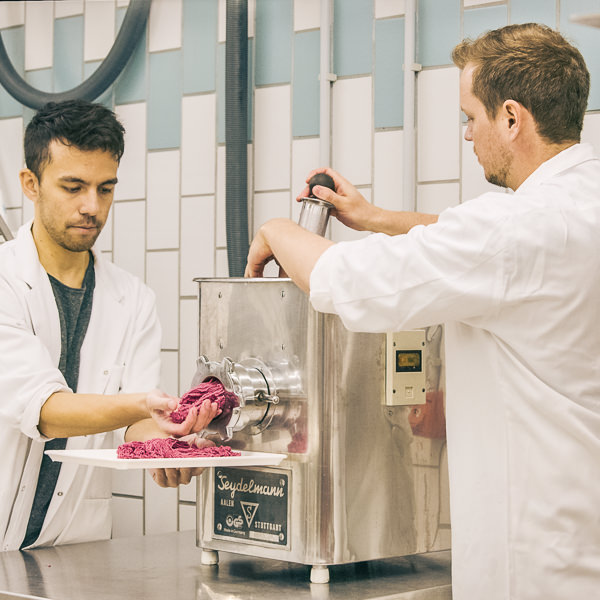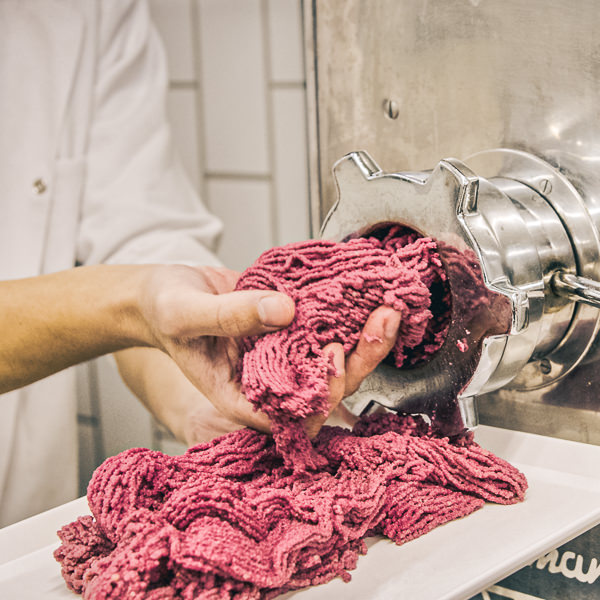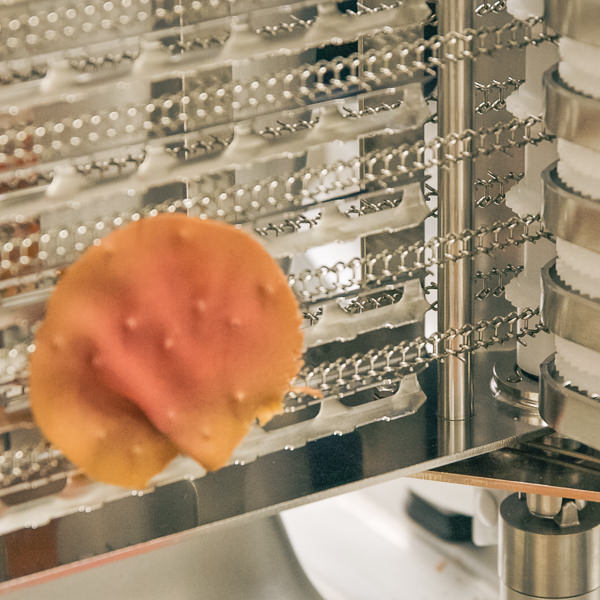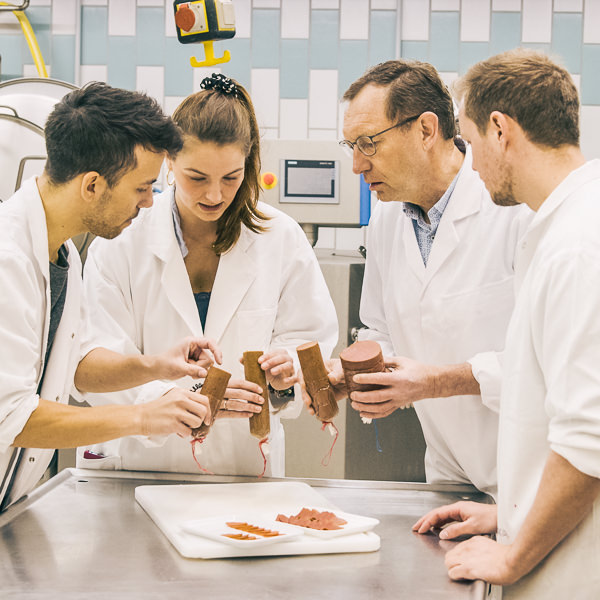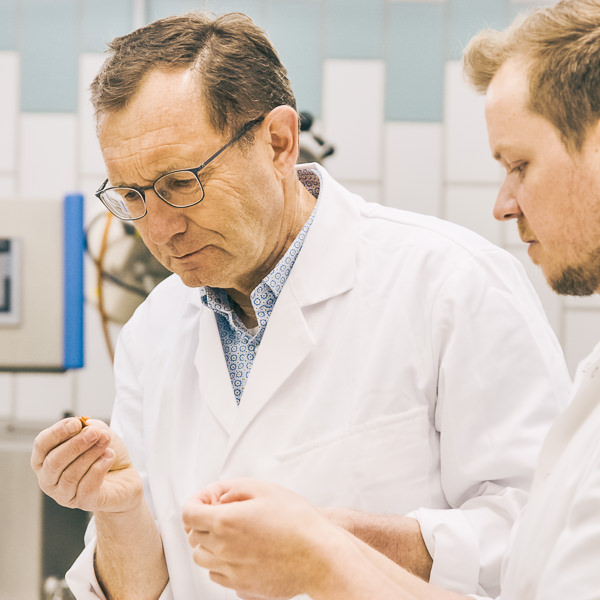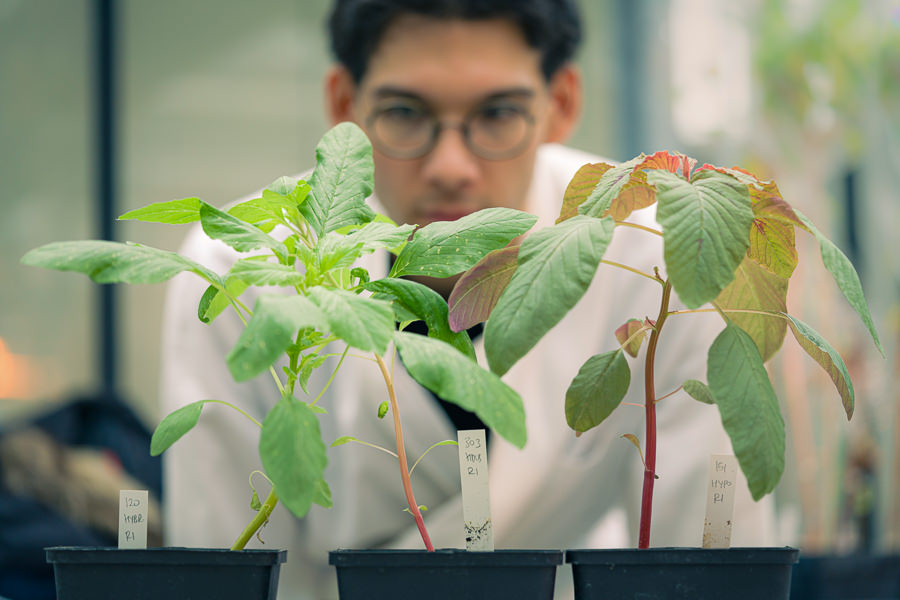
From School to Lab: Student Research on Proteins
Hohenheim’s award-winning Humboldt reloaded program promotes research-based learning as early as at bachelor level. Formed by the program and our outstanding senior researchers, our students and early career researchers contribute new ideas and exciting, ground-breaking, and award-winning projects to protein research.
Cutting Edge: Tomorrow’s Sustainable Food Leaders
What do phosphate, pork-free ham, and edible packaging have in common? They are all subjects of protein research here at the University of Hohenheim. And they are all driven by our early career researchers – just three of the many protein-related studies by up-and-coming scientists in our agricultural and natural science programs.
The world is indeed “in a pickle” when it comes to proteins. Proteins are at the center of both human and planetary health. So, it’s no surprise that many early career researchers are putting proteins under the microscope to uncover answers to today’s problems.
- How will limited phosphate impact the way humans process protein?
- How can we reduce packaging waste?
- How do we get more consumers to accept new food and new food technologies?
- Do microalgae have the potential to replace fish? Are they allergenic?
Our student researchers are finding answers to these questions and more right now.
Cracking the Egg
Team EDGGY is a group of five students who have teamed up to find a new way to make ready-made meals like ramen noodles as sustainable as they are convenient. After nine months of research and development, Team EDGGY produced a cutting-edge and award-winning product. Their edible packaging is made from a simple mixture of vegetable protein, eggshells, and structuring plasticizers such as water. It’s as elemental as it is ingenious – and it won Team EDGGY the prize for the most innovative idea at the EIT Food Reuse2Repack Challenge. The project gave the students the experience of a complete research cycle and taught them valuable entrepreneurial skills for their careers.
Video: EDGGY – Water-soluble plastic made from eggshells & proteins
No Pork, Please
“Ham without oink” started as a Humboldt reloaded project. The project’s objective is to produce delicious vegan ham. Although the demand for alternative protein sources for vegan products is rising, a meatless substitute for ham has yet to be found.
Ham is a meat variety with a particular taste and texture consumers expect, not to mention a complex structure that is difficult to replicate. So, while a wide range of products are on the market with simpler structured matrices, such as ground meat or boiled sausages, products with more complex structures are still in short supply.
The project team has been experimenting with ways to improve the taste, color, saltiness, juiciness, gumminess, and cut resistance of pork-free alternatives. After developing a basic food matrix for a vegan ham alternative, the team aims to enhance it further to improve juiciness, bite, and fiber structure while researching ways to upscale from the lab to a commercial pilot project.
Video: Ham without Oink – students develop vegi ham with bite
Consumer acceptance
Novel food technologies such as cultured meat, also known as lab-grown meat, are just as interesting to our students as novel foods. In a Humboldt reloaded project, a small team is reviewing the available literature, because they want to understand and evaluate what factors influence consumer acceptance and willingness to purchase cultured meat, including demographic differences. The purpose of the project includes uncovering ways to improve consumer acceptance of these products.
Mighty Microalgae
Substitutes for animal-based food are popping up in supermarkets everywhere, so the University of Hohenheim has not only meatless ham on its menu, but also fishless fish. Fish are rich in protein and in omega-3 fatty acids because they feed on other aquatic organisms such as microalgae, which are themselves rich in these nutrients. In fact, in the context of fish, algae are the original source of protein and omega-3 fatty acids.
A group of students is therefore studying a particular type of microalgae and its potential to replace fish in the human diet.
A prerequisite for the approval of new microalgae as food is proof of their safety for humans. That is why students in another Humboldt reloaded project are investigating the allergic potential of the microalgae Phaeodactylum. They are searching databases for known allergens in the sequence of the microalgae and will identify possible cross-reacting proteins in the lab using current biochemical and biomedical techniques.
Doctoral candidates and dissertations
Innovative early career research doesn’t stop after graduation, as demonstrated by the dissertation work of our doctoral candidates. From an insightful comparative study of grain proteins to solving an old problem in milk processing, our postgraduates are making outstanding and award-winning contributions to agricultural science.
For over 40 years, the University of Hohenheim has worked together with the Chinese Agricultural University. Currently, German and Chinese doctoral candidates are collaborating on AMAIZE-P – a research project to learn more about phosphorus, an essential element our bodies use to process proteins properly.
The Association of German Industrial Bakeries awarded Dr. Julia Zimmermann its Scientific Prize for her dissertation on grain intolerances. In her comparative study of all the proteins of various grains (rye, wheat, spelt) and the bread made from them, she found that neither a particular cereal nor dough is the sole trigger for intolerance outside of celiac disease and wheat allergy.
Dr. Sahrah Fischer received the 2022 Hermann Eiselen Science Prize, awarded every two years by the fiat panis foundation in Ulm, for her paper “Environmental and Farm Management Effects on Food Nutrient Concentrations and Yields of East African Staple Food Crops.” While looking at the yields and quality of three important staple crops in Africa, she also addressed plant and human nutrition issues. Furthermore, with climate change in mind, her results also affect future fertilization and cropping strategies. In this way, it makes a significant scientific contribution to improving farmers’ livelihoods and food and nutrition security.
The Research Group of the Nutrition Industry (Forschungskreis der Ernährungsindustrie e. V., FEI) awarded Dr. Jacob Ewert the 2022 Friedrich Meuser Research Prize for his outstanding dissertation on the continuous production of milk protein hydrolysates and their technical application, written as part of an Industrial Cooperative Research (IGF) project funded by the FEI. His work aimed to continuously produce milk protein hydrolysates with a defined composition, new technofunctional properties, and without adverse sensory effects. Based on his research results, new and more efficient production and application possibilities for milk protein hydrolysates are opening up throughout the food industry.
Early career researchers are essential
Proteins are fascinating subjects for research with the potential to help solve many of today’s problems – from eliminating plastic waste to eradicating food shortages. Up-and-coming scientists like those featured here demonstrate how vital student research is to discovering and developing new and innovative solutions.
Digging deeper
- EDGGY: Edible packaging from eggshells (Tagesschau, German)
- EDGGY: Female Students Invent Edible Packaging From Eggshells (packaging-360.com)
- EDGGY: Simply ingenious: Students invent edible packaging from eggshells (scienzaonline)
- EIT Food: European Institute of Innovation and Technology
- Ham Without Oink (press release)
